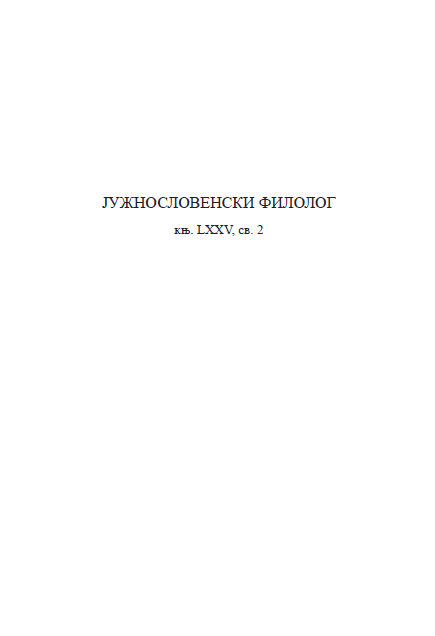ЛЕКСИЧЕСКАЯ ВАРИАТИВНОСТЬ КАК ФАКТОР ДИФФЕРЕНЦИАЦИИ БЛИЗКОРОДСТВЕННЫХ ЯЗЫКОВ (К ПРОБЛЕМЕ БЕЛОРУССКО-РУССКОГО ЯЗЫКОВОГО ВЗАИМОДЕЙСТВИЯ И ВЗАИМОВЛИЯНИЯ)
LEXICAL VARIATION AS A FACTOR IN THE DIFFERENTIATION OF CLOSELY RELATED LANGUAGES (ON THE PROBLEM OF BELARUSIAN-RUSSIAN LANGUAGE INTERACTION AND MUTUAL INFLUENCE)
Author(s): Alexander A. LukashanetsSubject(s): Lexis, Comparative Linguistics, Eastern Slavic Languages
Published by: Институт за српски језик Српске академије наука и уметности
Keywords: national language; closely related bilingualism; language purism; lexical variability
Summary/Abstract: The article considers the issues of lexical variability in the modern Belarusian standard language taking into account the peculiarities of its historical development and function, describes the types of lexical variants and reveals the reasons and ways of their development; it shows the effect of intra-language lexical variability on the development and nature of cross-language lexical variability (cross-language lexical parallelism) in conditions of losely related bilingualism; the main types of differences between the lexical units of the closely related Belarusian and Russian languages and their role in the manifestation of the national specificity of the Belarusian language in comparison with Russian are established.
Journal: Јужнословенски филолог
- Issue Year: 75/2019
- Issue No: 2
- Page Range: 43-58
- Page Count: 16
- Language: Belarusian

